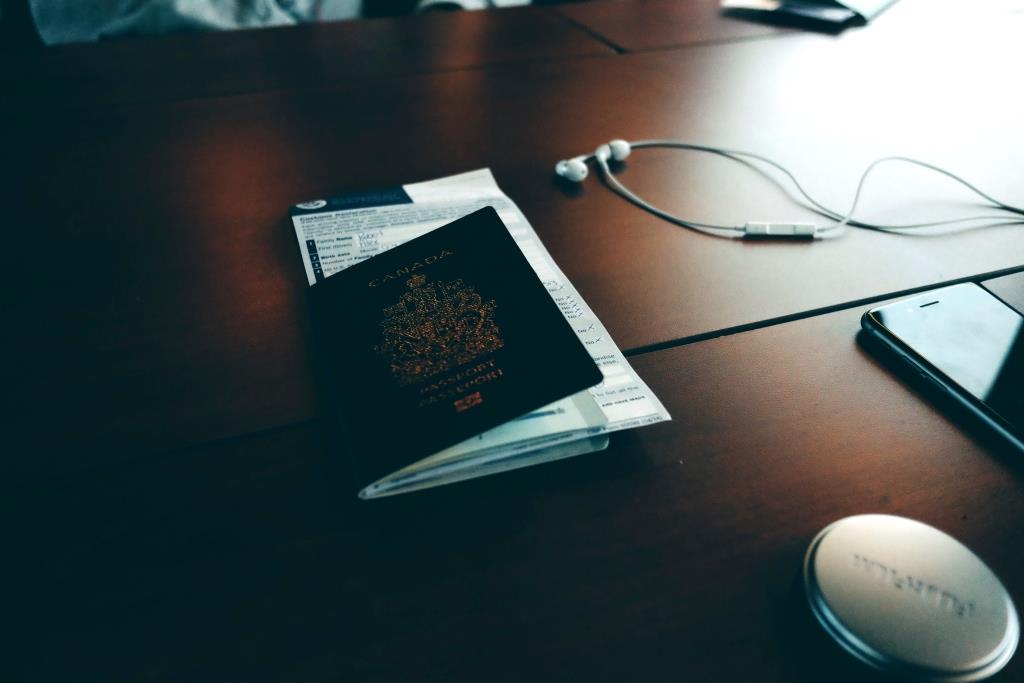During the past few years I have noticed that in my group of 10 friends, all of us have been in long distance relationship at some point. A majority of us had relationships between Europe and Asia–and all affected by long flights and big time differences.
It’s not easy to handle international long distance relationships, but today I’d like to tell what it is like to experience one with someone who is a different nationality and all of the obstacles that come with it.
So, what are the discoveries of LDR couples with different nationalities?
Family.
The moment your families realize that your relationship is more than a holiday romance, they start asking:
“What the hell are you both up to?”
“Why are you wasting your time with someone you don’t know and someone you will never be able to bond with?” (I’m my experience, older generations tend to think it’s impossible since you have different backgrounds)
And the worst thought the parents have is:
“Will we never see our child again because they will move to another country for good?”
Get ready, because you will have to put in some work defending your relationship. But don’t worry, when you finally meet each other’s family, they will definitely find you oh-so-charming!
Different languages.
It’s great if both of you have a common language in which you can fluently communicate. However, there are moments when you are in the heat of an argument or telling an emotional story, and the only phrase you can think of is in your native language. Even being fluent in English, I sometimes urge to express my emotions in Lithuanian. Over time, we both adapted some sayings from various languages and invented a mix of Lithuanian-Turkish-Hindi combination which no one around us can understand. It’s actually quite fun!
I have a great Spanish friend who has been living abroad since 2010. She admitted that she usually finds herself having issues when it comes to solving arguments with her foreign boyfriend (imagine doing that on Whatsapp and not even being able to see them)… Even though I can’t agree with her, she feels that her English isn’t good enough to express herself, which usually leads to arguments, based on misunderstandings.
But, I made a Korean friend while studying in China. She fell in love with a Swedish man, but none of them were fluent in English or Chinese at that point! After seeing each other for a month and using body language, she started studying Swedish so they could finally communicate verbally, too! Right now they are married, live in Sweden and have the luxury to argue in Korean so no one can understand them 🙂
It might feel like a challenge at times, but what about learning a new language with a help of a personal teacher and impressing their family next time you come for a visit? Also, it’s a very good activity to avoid getting bored during your Skype dates. Also, you can check this article for Skype date ideas.
Religion
The situation might vary depending on how religious you both are. Having different religions could go either way – having no effect on the relationship, or having a huge effect.
How important is faith for you? How important is it to share the same faith? Is your or your partner’s family ready to accept someone who has different religion? Remember that creating a partnership with a person from another country means having a relationship with their family too. Older generations might be more traditional and conservative. What religion would your kids choose? Try talking about all the aspects with your partner so you can get a sense of their perception.
Cultural differences.

Even if having a different religion is something that doesn’t trouble you, different cultural practices might become an important factor.
I have never felt a big cultural difference with my partner. We are both keen to celebrate important holidays from each other’s country. However, it takes time and effort for both sides to understand important moments, sentiments, and family traditions.
As well, I realized over time that even though my partner loves celebrating Christmas, he doesn’t have a deep emotional connection with the celebration, it will always remain something what he has “adopted” but never had in himself.
Different expectations
Different cultural backgrounds might result in both of you having different expectations about your relationship. Where will you settle? Are both of you ready to move to each other’s country if needed? How will you take care of ageing parents if at least one of you will live abroad? Will you have kids? And if you do, how will you raise them? What do you intend to give and what do you wish to receive? I believe that having this kind of conversation is more important in an international relationship, so you both get assurance that none of you will have any disappointment in the long run.
Different traditions
I don’t think of this as a disadvantage. I love learning about my partner’s celebrations and what’s important to his family, learn to cook traditional dishes, and (most importantly) we both get to celebrate more holidays than if we were dating people from the same country 😉
Finding out how good (or bad) your passport is.

When making decisions where to spend your next date together, you will have to admit that one of you has a much better passport. This will also have to be one of the main factors to consider when you finally close the distance. Will you move to their country or will they move to yours? Will you choose a third country?
A majority of my friends who are/were in a distant relationship with people from other countries named this as the biggest problem. Imagine trying to figure out your life, career, and country to settle in while ALWAYS having to consider the fact that at least one of you will have a long, difficult process with permissions documents and visas. It’s a big pile of “Who can stay where and for how long?” The harsh truth is that most of the times relationships with a foreign person becomes a distant one because one person has to go due to visa expiration.
Who will move and how will they adapt?

You will both have to evaluate the point of your careers you are at right now, the geographical location of your countries, and the possibility for both of you to have good job and satisfying social life. Whoever moves, will have to admit that they will have to take a big step back in their career and give some of their time (and money) for learning the language and preparing themselves for those initial career steps in a new place. It will take time and work, but it is so worth it. Preparing yourself for individual social life and better career opportunities is essential.
What if?..
If one of you decides to settle in your partner’s country, you will always have lingering doubts like, “What if I won’t be able to adapt?” This might put a lot of tension on both sides.
Imagine, you decide that your partner will settle in your country. What if there are things they can’t handle? Does it mean you have to find a new destination for both of you, and can you never live in your home country again? Or, if you are the one that moved, are you going to find yourself complaining more and more about something their country? Everyone that goes through the adaptation process likes to complain about their new location. It’s totally fine to do it while having dinner with your friends, but your partner might get offended or wonder if the move was a right step.
Visas
The biggest headache of all!
If one of you is settled or native in the country you move to, the most comfortable one is the spousal visa. But what if you are just closing the distance? Are you supposed to get married right away?
You want to give your relationship a chance, but can you get a residence permit without work? Some of the countries in Europe allow legal partnerships signed by the notary, which grant the partner’s residence permit while you are looking for a job. Having said that, the rest of the world might be more complicated and the most realistic way to be legal in a new country is to find a job beforehand which would help you adapt AND have your permits in place.
From my own experience, a person from a different culture can become much closer than someone you grew up with. On the other hand, a relationship over miles with someone who carries a passport from a different country can bring a lot of uncertainty…which may lead to insecurity and fights.
What challenges did you face in your LDR?

I found this article very encouraging. I have been in a long-distance relationship with my fiancé (who is Ugandan, living in Uganda), while I am Canadian, for the last year now. We were together for 6 months before I had to come back to Canada, and although we are seeing each other again this summer for three months, we will be apart again off and on for the next two years. All of these points you talk about are very correct. What makes things even more complicated is that we are also parenting two teenagers, living with my fiancé now, so money and budgeting is an additional complication. I appreciated this article, especially about the questions and concerns that family often brings up (I am the oldest daughter of 4 siblings), and no one is too keen on thinking about me moving to Africa, rather than staying in North America, but it is a very real possibility. I think my biggest piece of advice is that hope in the future for the relationship is what will keep a couple together when the kilometres are extra vast. It isn’t EASY, but I can say I have never been so challenged, and yet so strong, as I am right now. (I am looking forward to not being in a LDS for too much longer though!)
Hi Holly,
Thank you for reading and sharing your story. WOW! I always used to think that my story was extra challenging because we are from different countries and both of us were living outside, but we were at least a 6-hour flight away!
I adore your persistence and positive thinking! LDR is never easy, but it reminds us every day about the reasons why we got into it and why we fight for what we have. Hope and planning is something that will help to go through it and remain strong. I understand that you are aware of a possible date for closing the distance (as you say that you might have to be apart for the next 2 years), and it is really needed for keeping the hope alive. Do not give up, stay positive and always look for new possibilities which will help you to close the distance earlier than you think!
Hugs, Lisa